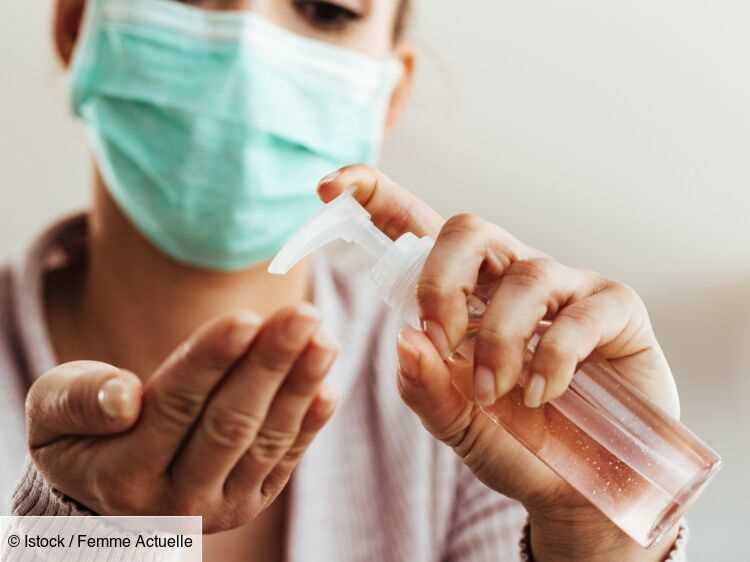Covid-19 does not spread in the same way in all territories. Since the beginning of February, the Alpes-Maritimes department has been strongly impacted by the circulation of the virus. According to the Regional Health Agency (ARS) of the Provence-Alpes-Côtes d´Azur (PACA) region, the incidence rate is 577 new cases per 100,000 inhabitants in this department. On February 17, the metropolis of Nice recorded 751 new cases per 100,000 inhabitants, while the national average is estimated at 190 cases.
During his weekly press conference on Thursday, February 18, Olivier Véran mentioned the "particularly worrying situation " of the Alpes-Maritimes department. At the request of the Minister of Health, the prefecture of the Alpes-Maritimes had organized a meeting with its elected officials to decide on new health measures. This Monday, February 22, the prefect Bernard Gonzales announced the establishment of partial confinement during the next two weekends. This new measure concerns the city of Nice and all the municipalities along the Alpes-Maritimes coast from Menton to Théoule-sur-Mer.
Alpes-Maritimes: what new measures have been put in place?
Partial confinement will begin this Friday, February 26 at 6 p.m. and it will end on Monday, March 1 at 6 a.m. Travel will therefore be prohibited during these two days. A certificate will be required for shopping and going to medical appointments. One-hour walks will be authorized, but they will be limited to a radius of 5km around the home.
During his press conference, Bernard Gonzales also indicated that wearing a mask is now compulsory in all high-traffic areas. Shops and shopping centers of more than 5,000 square meters will also have to close their doors on Tuesday 23 February. Pharmacies and food stores will be able to remain open and make home deliveries as well as click and collect.
"I I am satisfied with the announcement by the prefect – of the Alpes-Maritimes – of these new measures, in particular of containment, that I had requested and discussed with Olivier Véran during our interview on Saturday in town hall. Everything must be done to protect the inhabitants of Nice and our department", said Christian Estrosi, the republican mayor (LR) of Nice on Twitter.
These new measures are not, however, unanimous among all local elected officials. Jean Leonetti, LR mayor of Antibes, described the partial confinement as "sanitary and penalizing unnecessary"."They are not two weekends of confinement that will curb the pandemic. This is still an intermediate choice which will give an intermediate result … The population is fed up with stop-and-go. The next move, what is it? ", at indicated the councilor to World. According to Jean Leonetti, strict confinement accompanied by a massive vaccination campaign would have been a good solution.
Local confinements: have these measures been adopted abroad?
Local containment is a great first for the metropolis. Before the announcement of partial confinement in the Alpes-Maritimes, only two overseas departments had experienced this measure. On February 5, Mayotte established local containment for a minimum of three weeks in order to limit the spread of the British and South African variants.
Several countries have already tried the local containment strategy. In early March 2020, Italy had sealed Lombardy to reduce coronavirus contaminations. National containment was, however, introduced a few weeks later. Germany, Spain and the UK have also experimented with local lockdowns, but all governments then reinstated national lockdowns.
From the start of the health crisis, New Zealand adopted the “zero Covid” strategy by closing borders, schools, businesses and non-essential businesses. The goal of this maneuver? Anticipate the evolution of the epidemic. No new cases of Covid-19 were recorded from May to August 2020 in the country. A new source of contamination however appeared in Auckland in August 2020. The executive therefore reconfigured the city for three weeks until the beginning of September.
In February 2021, three new cases of Covid-19 were again identified in Auckland. The New Zealand authorities have therefore placed the city under quarantine. Three days later, the local lockdown was lifted as the infected patients tested negative for the virus. So far, no new contamination has been recorded.
Can local containment be more effective?
Since the start of the health crisis, the Alpes-Maritimes have been particularly affected by the virus. The advancement of the curfew to 6 p.m. had been put in place on January 2 in this department, fifteen days before its introduction throughout the country. Will local containment therefore be more effective in limiting contamination?
According to Michaël Rochoy, member of the "On the side of science" collective, local confinement can be "justified and relevant". "This type of confinement can even be very local. In a department, even in a canton or a municipality. Then we can rely on saliva tests blind in some areas to adjust measures ", he said to our colleagues from 20 minutes. However, the specialist indicated that this solution would be less effective than generalized containment.
During an interview granted in Parisian, Mircea Sofonea, lecturer in epidemiology at the University of Montpellier, said that the effectiveness of local containment "would be comparable to our national confinements". For Catherine Hill, epidemiologist, this type of measure is only effective on one condition:"We confine the places where there is the virus, we test everyone. We isolate contagious people and then the virus no longer circulates", she explained to LCI.
Read also :
⋙ Covid-19: how long does the immune response last after a first infection?
⋙ Covid-19: what is this worrying new variant already identified in 13 countries?
⋙ Side effects, how to get vaccinated: all you need to know about the Covid-19 vaccine
